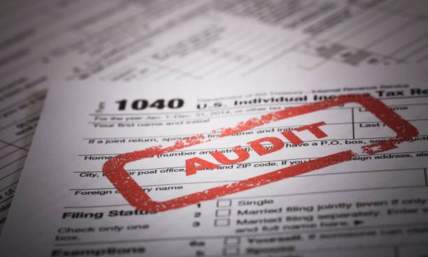What To Do if Your Employer Doesn’t Provide Pay Stubs
Balancing work and personal life is already hard enough. The last thing you want is to have pay issues at work. So, when your employer does not issue pay stubs, it can be an issue.
It makes a person financially disoriented in every aspect. This, in turn, affects such things as the personal budget or applying for loans. So, you need to know what to do if your employer doesn’t provide pay stubs.
In this article, we’ll let you know what to do if your employer doesn’t pay stubs. You’ll also understand some remedies if you have such issues.
Why Are Pay Stubs Important for Finances?
A pay stub represents all the information regarding the employee’s compensation. From your basic wage or salary to overtime when you worked past the standard working hours. Gross wages refer to the amount that you have earned before having any deductions duly made on it.
It also includes taxes and other contributions you choose to make. Examples of these are health insurance or pension contributions. All this information gives a clear picture of your financial affairs.
Employees need this information to manage different aspects of their finances. They use it while creating budgets or applying for certain things. This can include loan or rental applications.
Legal Requirements for Employer Pay Stubs
The rules concerning employer pay stubs are not as simple as one would think. You need to understand them to know what to do if your employer doesn’t provide pay stubs. At the federal level, the FLSA does not compel any employer to provide pay stubs. This allows variation in the treatment of employees based on their jurisdiction. It also depends on the details and circumstances of their employment.
Some states have set good legal standards for the issuance of pay stubs. For instance, California has laws demanding what is in the employer pay stubs. The employer must show every single contribution to the employee’s pay. Such statements should provide information about gross wages and total hours worked. It should also show the rate of pay and a list of deductions.
On the other hand, there are states like Alabama and Florida, which are relatively liberal compared to others. Thus, employees in such states have limited legal protections.
So, it is important that you make yourself conversant with your state’s laws on employer pay stubs. Each state generally belongs to a few categories of pay stub laws. Access states indicate that the employees must be able to access their pay details. Then, there are access/print states. Those ones specify the format in which the pay stubs should be provided, which is in print. Some require employees’ consent to start using electronic forms.
What to Do If Your Employer Doesn’t Provide Pay Stubs
Here are steps on what to do if your employer doesn’t provide pay stubs:
-
Communicate with Your Employer
The first step is making a direct approach to your employer. Meet with your supervisor or the HR department personally. You can ask for or plan a meeting with them. While having this particular conversation, ask questions on why the employer pay stubs are not issued.
There might be issues with the digital tools that the employer uses. There might also be other forms of documentation that you are not aware of. It is important to take detailed notes during the conversation. Then, email the recipient of your discussion after the conversation. This ensures there’s a paper trail to follow.
-
Request in Writing
In case you need to escalate the issue, writing a letter is a good option. Put together a clear, professional letter or email to request your pay stub documentation. Describe what the issue is in detail. State what you need in your letter clearly. That includes the pay period for which you need stubs and when you need them.
In your letter, request written acknowledgment of your request. The correspondence should also be made part of the documentation process. Ensure you retain all correspondences.
-
Gather Necessary Information
Collect all the materials and documents that can support any income you receive. This can be any bank statements regarding direct deposit or employment contracts. Timesheets and other documents evidencing the hours worked, as well as other documents showing the compensation that has been made, are also part. These will be very useful, for instance, if you have to make a report.
-
Contact Authorities
If your employer refuses or ignores your requests, you still have another course of action. Here’s something else on what to do if your employer doesn’t provide pay stubs. You can decide to report it to your state’s Department of Labor. States have different employer pay stubs requirements.
Therefore, each state has its own way of handling them. Out of the states, some require businesses to give employer pay stubs. Other states allow more relaxed laws to be followed. You can seek assistance from the Wage and Hour Division about your case.
-
Consider a Professional
If the situation does not change, you can consider getting the services of an employment attorney. Most of them will provide consultations with you. This helps them explain the rights of clients and options that can be considered. They may be able to offer advice based on state labor laws. So, you can find the most appropriate approach for addressing the pay stub problem.
Potential Employer Consequences
Employers who neglect to provide timely pay stubs are not only causing an issue for employees. They may also be flouting the law. Here are some possible consequences if businesses don’t provide employer pay stubs:
Fines
Employers may be subjected to heavy penalties depending on the laws in the individual states. This applies to all the states where such employers operate and fail to provide proper documentation. Some jurisdictions provide that companies risk a fine of between $50-$100 per pay period. That’s for each employee who has not documented appropriately.
These penalties might not be exigent in the first instance, but they have the potential of piling up. This can cause considerable losses to employers who have not complied with the legal provisions.
Legal Action
Other than monetary issues, employers face more serious consequences. The Departments of Labor usually care about mutual wage transparency. They are capable of conducting large-scale investigations. Usually, this is when employers have violated a lot of documentation provisions. At times, such investigations lead to demands for the payment of back wages. This may come in addition to other fines or even legal proceedings.
Business Issues
The consequences are not just financial; they also affect the business. In their operations, employers suffer a number of consequences as a result of inadequate documentation. This can include earning a poor reputation or poor chances of acquiring suitable employees. It may also lead to increased attention from regulatory agencies, among others.
This, in turn, makes pay stub compliance not only an important legal regulation. It’s also an important standard that businesses must meet to sustain their operations.
Wrap Up
Now, you know what to do if your employer doesn’t provide pay stubs. Sorting out your pay stub documentation may seem like some kind of arduous expedition. But the truth remains that information is strength. You need to know your rights and be able to document your finances. You should also be able to determine when to get further assistance. This will ensure that you are paid the right compensation in your workplace.
Create precise pay stubs easily with our pay stub generator. Maybe your employer doesn’t provide pay stubs. You may also need to organize your financial documentation. In any case, our platform has you covered. Start crafting accurate and professional pay stubs today with our tool. Let’s help you take control of your payroll records.















